
Relative pronouns who,which,where ge… English ESL worksheets pdf & doc
Identifying the relative pronoun is the first step to understanding relative clauses. In English, there are eight relative pronouns: that, who, whom, whose, which, where, when, and why. Like all pronouns, they take antecedents. An antecedent is simply the noun a pronoun refers to or replaces in a sentence. Ex. Terry gave her boss a bad review.

Learning the English Language WHQuestions
Those students, who did not study for the exam, failed. One rule that is commonly taught to learners of English is that you can use who to refer to animate nouns (people and pets) and which to refer to inanimate nouns (things). However, that can be used for both animate and inanimate antecedents. Another common rule is that you can use which or.
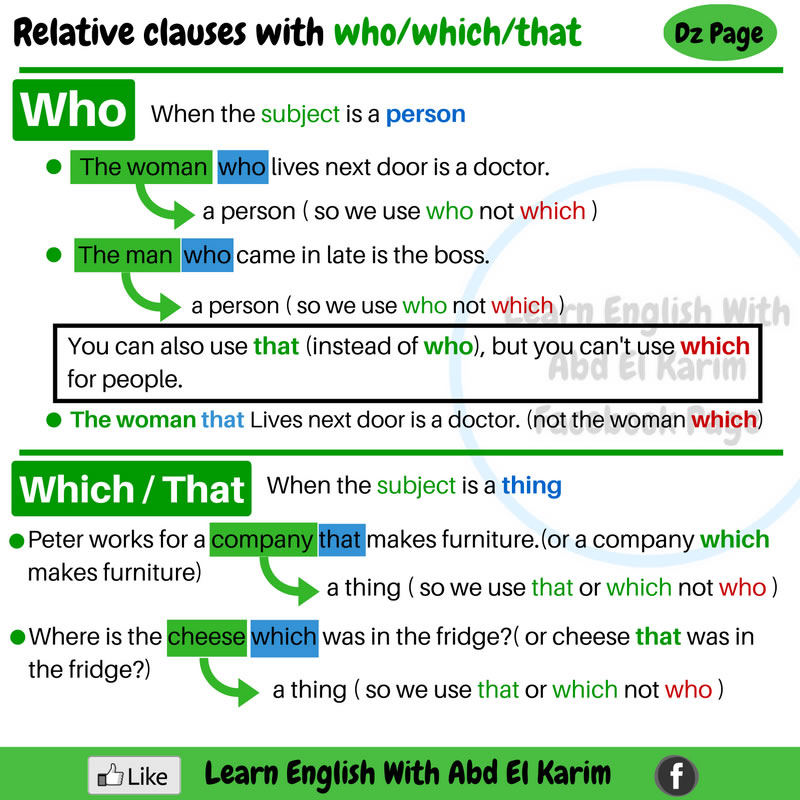
Relative Clauses English With Life Relative Clauses / A relative
We use who in relative clauses for a person. Who is followed by a verb. We use whose in relative clauses instead of his/hers/theirs. Whose is followed by a noun. We use where in relative clauses to talk about a place. Where is followed by a noun or pronoun. We use which (and that) in relative clauses to talk about a thing. Use the link below.
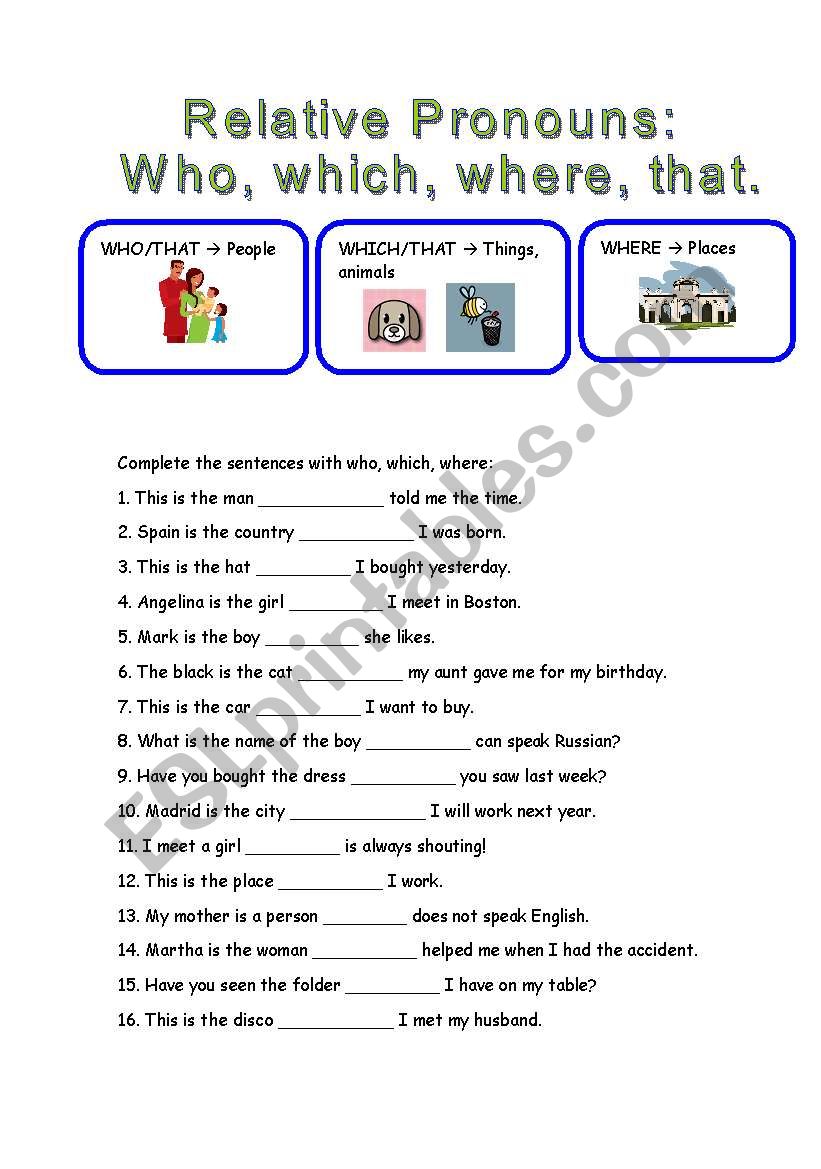
RELATIVE PRONOUNS WHO, WHICH, WHERE ESL worksheet by mariajo81
To determine whether whom is the preferred pronoun, we need to figure out if the noun or noun phrase that who refers to is in the object position or not. We'll replace who with the noun/noun phrase it refers to, and split the whole thing into two sentences for clarity: The person told my dog about the sandwich. The person was unhelpful.
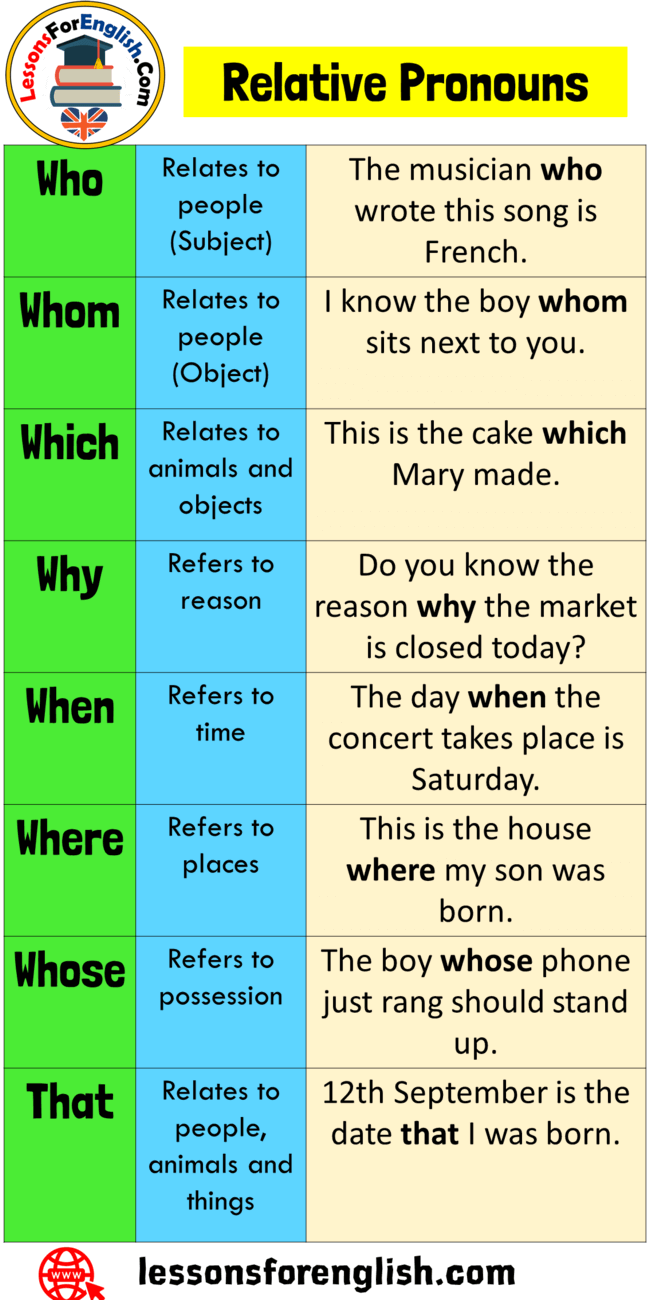
Use of what who which whom why how altajas
Let's do English ESL general grammar practice. Put the words into correct order using who, which, where relative pronouns and adverbs.

Relative clause Who, Which, That… English ESL worksheets pdf & doc
In recent years, who often replaces whom. Which can serve as the subject of a question, too. A familiar example is "Which came first—the chicken or the egg?". The answer—the chicken, because egg shells form using a protein that exists only in the ovaries of a chicken—is a noun, a thing. Many find it harder to use who or which as.

English Intermediate I U7Relative clauses
Choose the correct relative pronouns to complete the following defining relative clauses. 1 I have a friend speaks four languages. 2 The Internet is a place you can get cheap technology products. 3 E-mails advertise things are called "spam". 4 A "technophobe" is someone is scared of technology. 5 We should only buy products can be recycled.
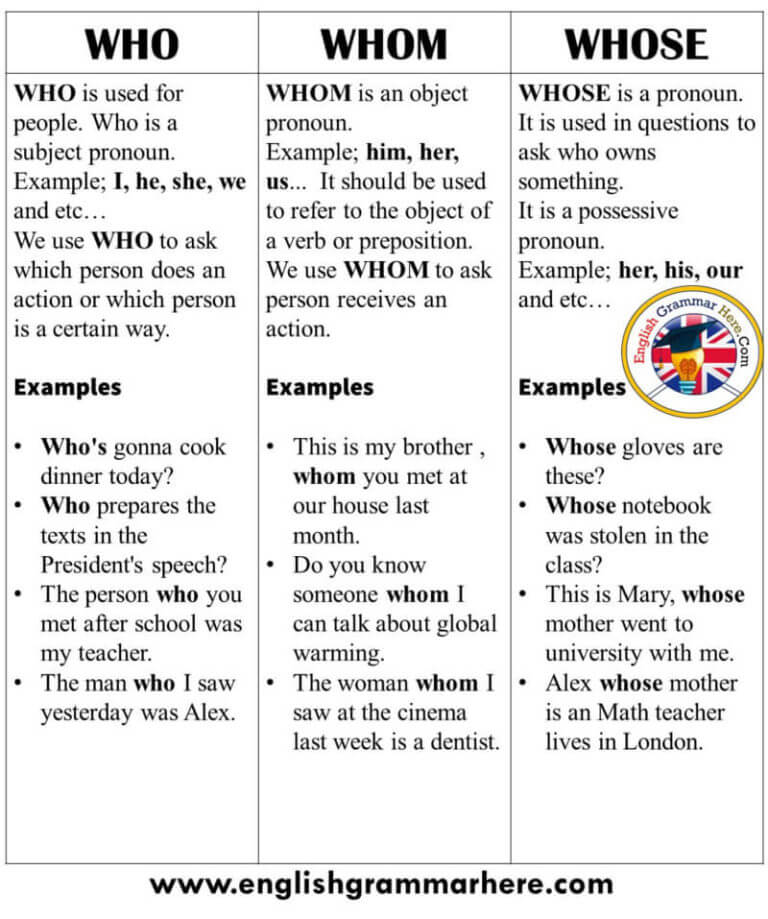
How to Use Who, Whom, Whose in English English Grammar Here
Relative pronouns - English Grammar Today - a reference to written and spoken English grammar and usage - Cambridge Dictionary

Who Which Where Whose lupon.gov.ph
The type of clause determines what kind of relative pronoun to use. Generally, there are two types of relative clauses: restrictive (defining) clause and non-restrictive (non-defining) clause.In both types of clauses, the relative pronoun can function as a subject, an object, or a possessive pronoun ("whose").Relative pronouns in restrictive relative clauses

self introduction form worksheet free esl printable question words
who which where. I bought my airpods. He is the boy. who which where. helped me with the party. This is the place. who which where. our car broke down. My phone is the one.

Relative Pronouns Who Whom Whos… Deutsch DAF Arbeitsblätter pdf & doc
Who, Which or Where. djg51qu. 52. 0. 1. 0. 1/10. Let's do English ESL general grammar practice. The student is challenged to determine which of these relative pronouns should be used in which situations.
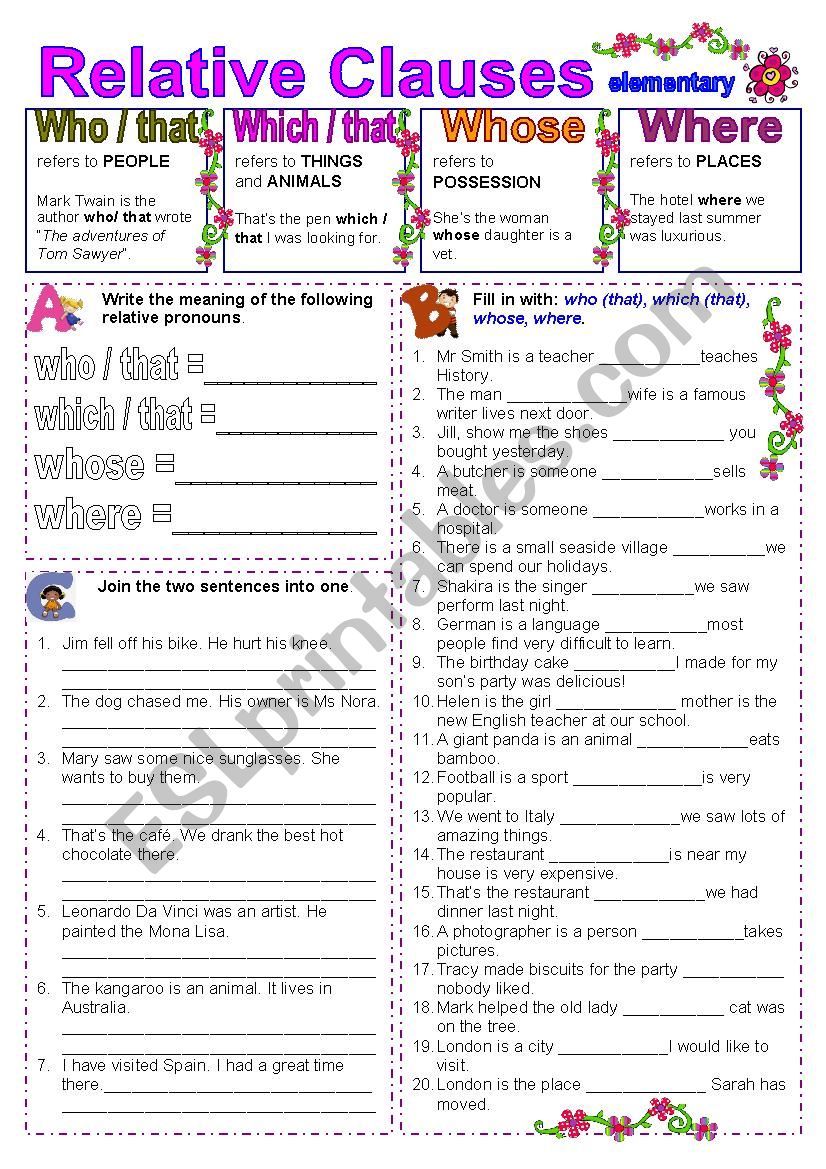
Relative Clauses WHO/WHICH/THAT/WHOSE/WHERE ESL worksheet by vickyvar
How do you use the words who, whose, which, and what as pronouns in questions?. See more | Collins Education
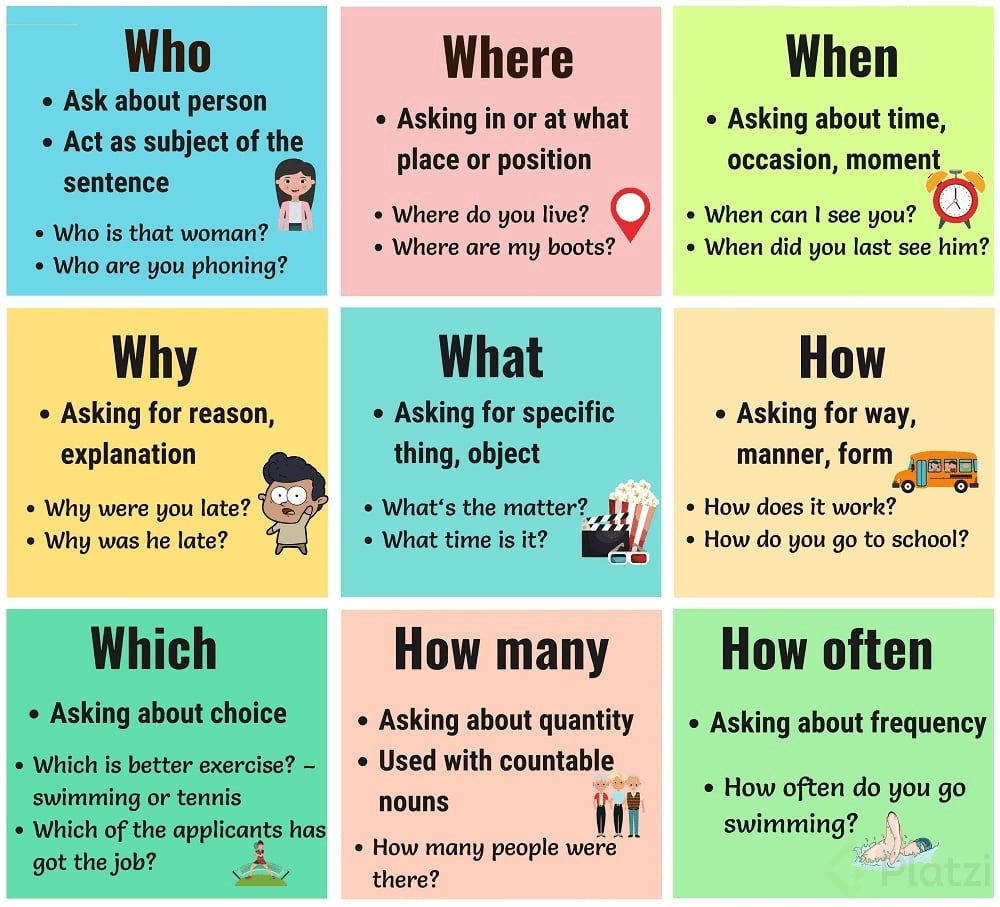
WH Questions in Simple Present Platzi
Relative pronouns and relative adverbs introduce relative clauses. 'Who' - 'whose' - 'whom' - 'that' and 'which' - are relative pronouns. 'Where' is a relative adverb. There is often confusion about the use of who, whose, whom, that, which or where. We use who when referring to people or when we want to know the person.

Who What Where When Why Worksheets
Defining relative clauses give us essential information - information that tells us who or what we are talking about. The woman who lives next door works in a bank. These are the flights that have been cancelled. We usually use a relative pronoun or adverb to start a defining relative clause: who, which, that, when, where or whose.
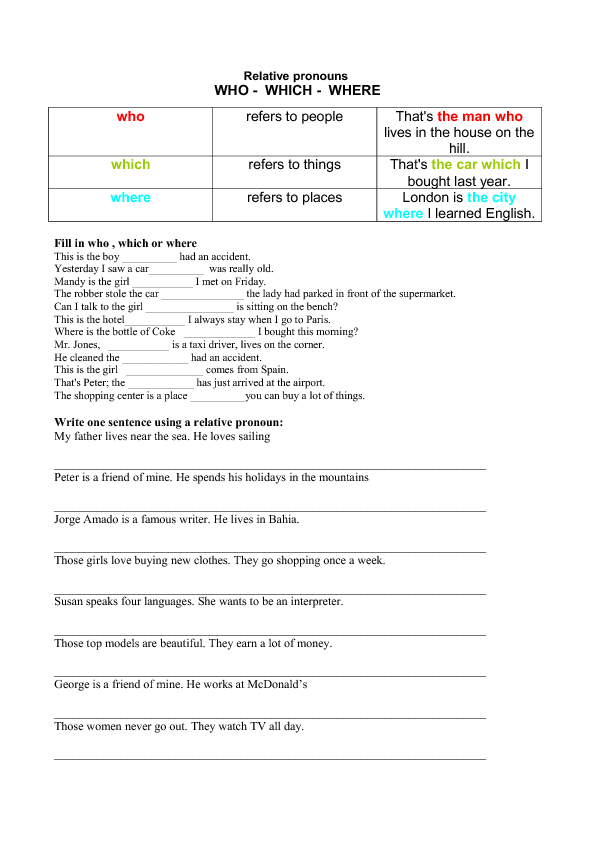
Relative Pronouns Who Which Where
National Transportation Safety Board Investigator-in-Charge John Lovell examines the fuselage plug area of Alaska Airlines Flight 1282's Boeing 737 Max 9 after its emergency landing. NTSB/Handout.
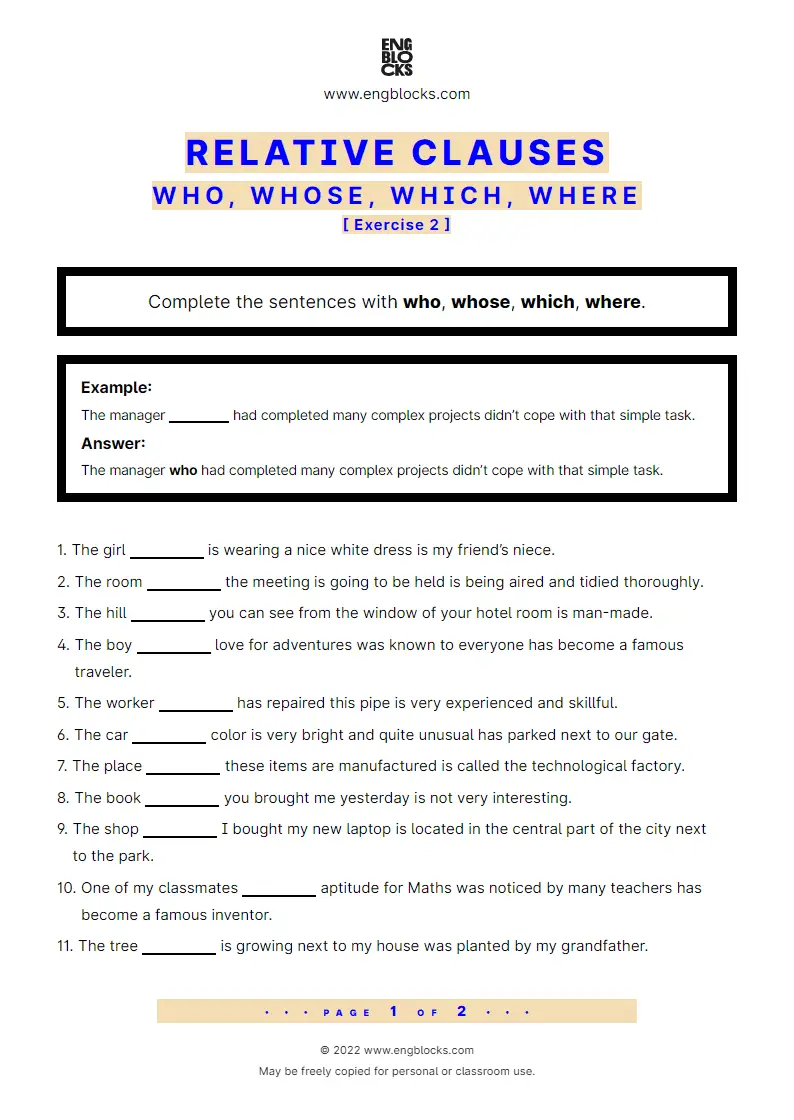
Relative clauses who, whose, which, where Exercise 2 Worksheet
Omitting the words "that", "who", "whom", "which", or "whose" is a frequent cause of confusion. Sir, you are obviously teaching watered-down English is those courses and not the real thing. Therefore, anything that you say derived from those courses is nonsense. 3. "whose" for its possessive case.